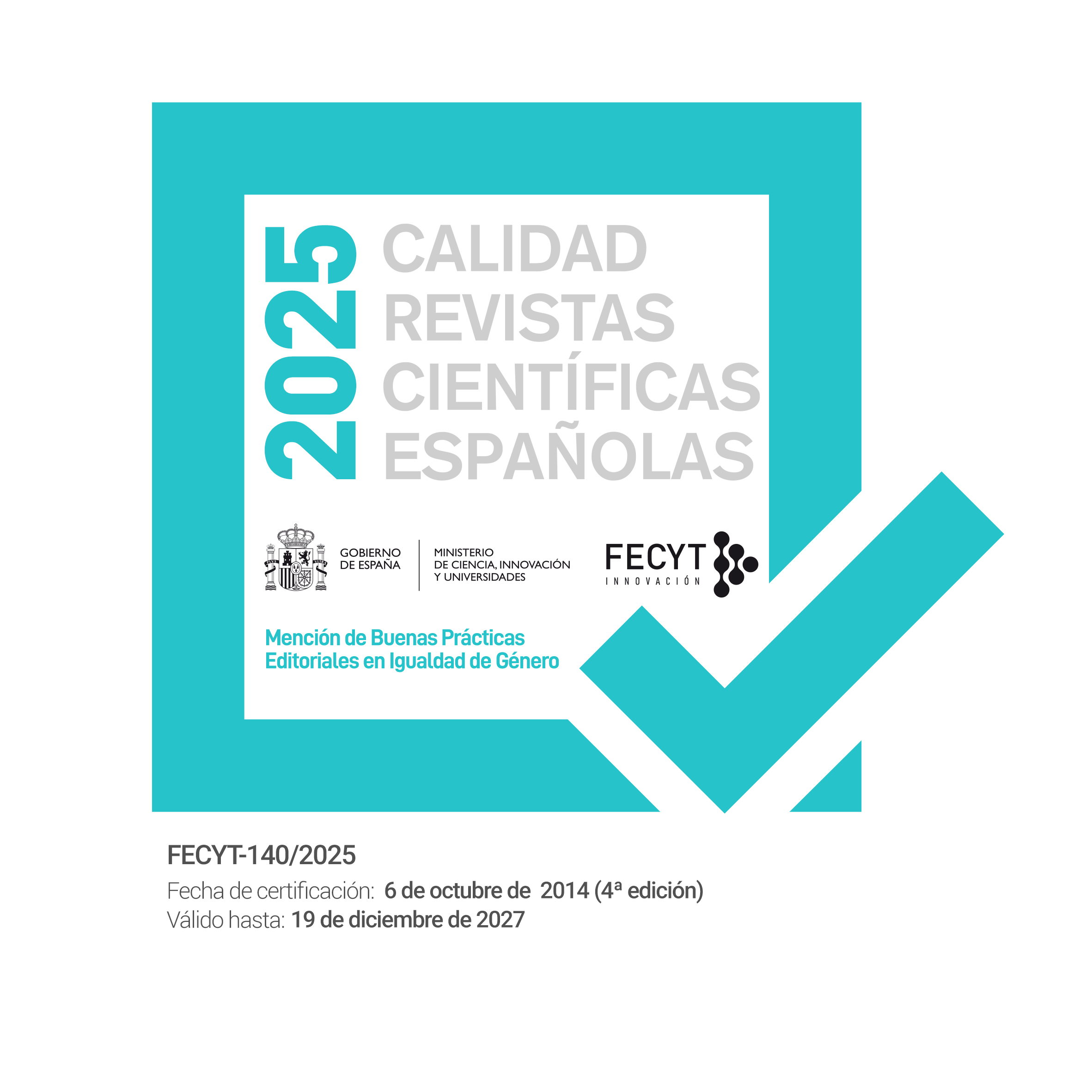Student teachers volunteering in pre-service programmes in successful schools: Contributing to their successful training
DOI:
https://doi.org/10.5944/educxx1.22620Keywords:
teacher education, Successful Educational Actions, student teachers, volunteering, pre-service teachersAbstract
Following recent literature on the field of teacher education, this is considered as key factor in promoting school success. In this regard, most research has been dedicated to clarify which type of education is most effective to train successful teachers in order they can face properly the challenges of modern societies. This article contributes to this ongoing debate by providing the self-reported benefits among student teachers of the Rovira i Virgili University who have served as volunteers in Learning Communities where different Successful Educational Actions (SEAs) are executed. Learning Communities is an evidenced-based project which is widely implemented in schools worldwide. This project is based on the development of SEAs that have been investigated by different European competitive projects. Findings illustrate that these actions are improving children’s academic performance and school climate regardless of the context they are applied. In the present study, based on a mixed-method approach, three different data collection techniques have performed addressed to students teachers: group interviews, semi-structured interviews and open-ended questionnaires. Results demonstrate the impact of being volunteers in these schools which are summarized on two main facts. First, the quality of the student teacher’s training and professional experience improved through their involvement as volunteers in schools as Learning Communities. Second, this involvement in Successful Educational Actions has a great impact in the improvement of children’s and families’ learning. Drawing on these results a reformulation of teacher education is openly discussed. In fact, research evidences the benefits of construct teacher education programmes based on theories and practices that are scientifically effective to reduce educational inequalities.
Downloads
References
Aubert, A., Villarejo, B., Cabré, J., & Santos, T. (2016). La Verneda Sant Martí adult school: a reference of popular education in the neighborhoods. Teachers College Record, 118(4), 1-32.
Retrieved from https://bit.ly/2TC62rn
Ariza, E.N. (2003). Tesol tutor time homework center a collaboration of volunteer preservice teachers in the public elementary schools. Urban Education, 38(6), 708-724.
doi: https://doi.org/10.1177/0042085903257316
Baker, C., Johnson, G.S., Williams, L., Perkins, D.G., & Rainey, S.A. (2008). The highlander research and education center: Utilizing social change-based models for public policy. Race, Gender & Class, 15(3-4), 308-334. Retrieved from https://bit.ly/2BocE5B
Bochner, S. (2003). Culture shock due to contact with unfamiliar cultures. Online Readings in Psychology and Culture. Retrieved from https://bit.
ly/2WQhLoi
Butcher, J., Howard, P., Labone, E., Bailey, M., Groundwater, S., McFadden, M., & McMeniman, M. et al. (2003). Teacher education, community service learning and student efficacy for community engagement.
Asia-Pacific Journal of Teacher Education, 31(2), 109-124.
doi: http://dx.doi.org/10.1080/13598660301612
Carrillo, A., Girbés-Peco, S., De Botton, L., & Valls-Carol, R. (2017). The role of communicative acts in the Dream process: engaging Moroccan migrants in a community development initiative in urban Spain. Community Development Journal, 1-18. doi: https://doi.org/10.1093/cdj/bsx049
Carrington, S., & Saggers, B. (2008). Service-learning informing the development of an inclusive ethical framework for beginning teachers. Teaching and Teacher Education, 24(3), 795-806.
doi:10.1016/j.tate.2007.09.006
Chamberlain, A., Slavin, R., & Madden, N. (2001). Effects of Success for All on TAAS Reading: A Texas statewide evaluation. Baltimore, MD, USA: Center for Research on the Education of Students Placed at Risk.
Coleman, J., Campbell, E., Hobson, C., McPartland, F., Mood, A., Weinfeld, F. et al. (1966). Equality of educational opportunity. Washington, DC, USA: U.S. Government Printing Office.
Council for the Accreditation of Educator Preparation. (2013). CAEP Commission recommendations to the CAEP board of Directors. Retrieved from https://bit.ly/2UOOTLf
Council of European Commission. (2014). Conclusions on effective teacher education. Brussels, Belgium: European Commission.
Darling-Hammond, L. (2010). Teacher education and the American future. Journal of Teacher Education, 61(1-2), 35-47. doi:10.1177/0022487109348024
Díez, D., Gatt, S., & Racionero, S. (2011). Placing immigrant and minority family and community members at the school’s centre: The role of community participation. European Journal of Education, 46(2), 184-196. doi: 10.1111/j.1465- 3435.2011.01474.x
du Plessis, A.E., & Sunde, E. (2017). The workplace experiences of beginning teachers in three countries: A message for initial teacher education from the field. Journal of Education for Teaching, 43(2), 132-150.
doi: 10.1080/02607476.2017.1286759
Epstein, J.L. (1995). School/family/community partnerships: Caring for the children we share. Phi Delta Kappan, 76, 701-71 2.
Flecha, R., & Buslon, N. (2016). 50 Años Después del Informe Coleman. Las Actuaciones Educativas de Éxito sí Mejoran los Resultados Académicos [50 Years after the Coleman Report. SEAs Improve Academic Results].
International Journal of Sociology of Education, 5(2), 127-143.
doi: http://dx.doi.org/10.17583/rise.2016.2087
Flecha, R. (Ed.) (2015). SEAs for Inclusion and Social Cohesion in Europe. Dortrech, Netherland: Springer International Publishing. Flecha, R., Soler, M., & Sordé, T. (2015). Social impact: Europe must fund social sciences. Nature, 528, 193. doi:10.1038/528193d
Freire, P. (2000). Pedagogy of the Oppressed. New York, USA: Continuum.
García-Carrión, R., Molina-Luque, F., & Roldán, S. M. (2018). How do vulnerable youth complete secondary education? The key role of families and the community. Journal of Youth Studies, 27(14), 701-716.
doi: 10.1080/13676261.2017.1406660
Gómez, A., Puigvert, L., & Flecha, R. (2011). Critical Communicative Methodology: Informing Real Social Transformation through Research. Qualitative Inquiry, 17(3), 235-245.
doi:10.1177/1077800410397802
Hanushek, E. A., & Rivkin, S.G. (2012). The distribution of teacher quality and implications for policy. Annual Review of Economics, 4, 131-157.
doi: 10.1146/annurev-economics-080511-111001
Harp, E.R., Scherer, L.L., & Allen, J.A. (2017). Volunteer engagement and retention: their relationship to community service self-efficacy. Nonprofit and voluntary sector quarterly, 46(2), 442-458.
doi: 10.1177/0899764016651335
Harvard Family Research Project. (2006). Family involvement in elementary school children’s education. Nº2 Winter 2006/2007. Boston, Mass, USA: Harvard University.
Herrera, A.L. (2018). Decálogo de Competencias y sus Indicadores para Gestión de Capital Humano Universitario. Multidisciplinary Journal of Educational Research, 8(1), 56-85. doi: 10.17583/remie.2018.2990
Hobjilă, A. (2012). Effective/ineffective in pedagogical practicum – mentors’ considerations on the initial training of pre-school teachers. Procedia - Social and Behavioral Sciences, 33, 318-322.
doi:10.1016/j.sbspro.2012.01.135
Hobson, A. J., Ashby, P., Malderez, A., & Tomlinson, P.D. (2009). Mentoring beginning teachers: What we know and what we don’t. Teaching and Teacher Education, 25(1), 207-216. doi:10.1016/j.tate.2008.09.001
Howlett, C. F., & Cohan, A. (2016). John Dewey: His Role in Public Scholarship to Educate for Peace. Social and Education History, 5(3), 203-222. doi:10.17583/hse.2016.2097
Korthagen, F., Loughran, J., & Russell, T. (2006). Developing fundamental principles for teacher education programs and practices. Teaching and Teacher Education, 22(8), 1020-1041. doi:10.1016/j.tate.2006.04.022
Lazar, A.M. (2007). It’s not just about teaching kids to read: Helping preservice teachers acquire a mindset for teaching children in urban communities. Journal of Literacy Research, 39(4), 411-443.
doi: https://doi.org/10.1080/10862960701675291
Lincoln, Y., & Guba, E. (1985). Naturalistic Inquiry. Beverly Hills, C.A., USA: Sage.
McDougle, L., McDonald, D., Li, H., Miller, W.M., & Xu, Ch. (2017). Can philantrophy be taught? Non profit and voluntary sector quarterly, 46(2), 330-351. doi: 10.1177/0899764016662355
Moulding, L.R., Stewart, P.W., & M.L. Dunmeyer, M.L. (2014). Pre-service teachers’ sense of efficacy: Relationship to academic ability, student teaching placement characteristics, and mentor support. Teaching and Teacher Education, 41, 60-66. doi:10.1016/j.tate.2014.03.007
Mutton, T., Burn, K., & Hagger, H. (2010). Making sense of learning to teach: learners in context. Research Papers in Education, 25(1), 73-91. doi:10.1080/02671520802382912
OECD (2011). Teachers matter: Attracting, developing and retaining effective teachers. Paris, France. Retrieved from https://bit.ly/2JOp5sX
Paula, L.C. (2018). La Potencialidad del Diálogo Freiriano para las Investigaciones sobre la Constitución de los Formadores de Profesores. Multidisciplinary Journal of Educational Research, 7(2), 86-110.
doi: 10.17583/remie.2018.3186
Qiao, X., & A’rong, Y. (2008). On understanding the movement to send college graduates as volunteer teachers to Western China. Chinese Education & Society, 41(4), 23-46. doi: 10.2753/CED1061-1932410402
Ryan, M., Carrington, S., Selva, G, & Healy, A. (2009). Taking a «reality» check: Expanding pre-service teachers’ views on pedagogy and diversity. Asia-Pacific Journal of Teacher Education, 37(2), 155-173.
doi: 10.1080/13598660902804303
Sánchez, M. (1999). Voices inside schools-La Verneda-Sant Martí: A school where people dare to dream. Harvard educational review, 69(3), 320-336. https://doi.org/10.17763/haer.69.3.gx588q10614q3831
Soong, H. (2013). Why volunteer? The complexities of international pre-service teachers’ intercultural adjustment experiences through community service engagement. Asia-Pacific Journal of Teacher Education, 41(1), 69-83. doi: 10.1080/1359866X.2012.753986
Trevethan, H. (2017). Educative mentors? The role of classroom teachers in initial teacher education. A New Zealand study. Journal of Education for Teaching, 43(2), 219-231. doi: 10.1080/02607476.2017.1286784
University of Wisconsin-Madison. (2015). Volunteering and Service Learning for Future Teachers. Retrieved from https://bit.ly/2TCfJG5
Villardón-Gallego, L., García-Carrión, R., Yáñez-Marquina, L., & Estévez, A. (2018). Impact of the Interactive Learning Environments in Children’s Prosocial Behavior. Sustainability, 10, 2138. doi: 10.3390/su10072138
Published
How to Cite
Issue
Section
License
Copyright (c) 2019 Educación XX1

This work is licensed under a Creative Commons Attribution-NonCommercial 4.0 International License.
Educación XX1 is published under a Creative Commons Attribution-NonCommercial 4.0 (CC BY-NC 4.0)










